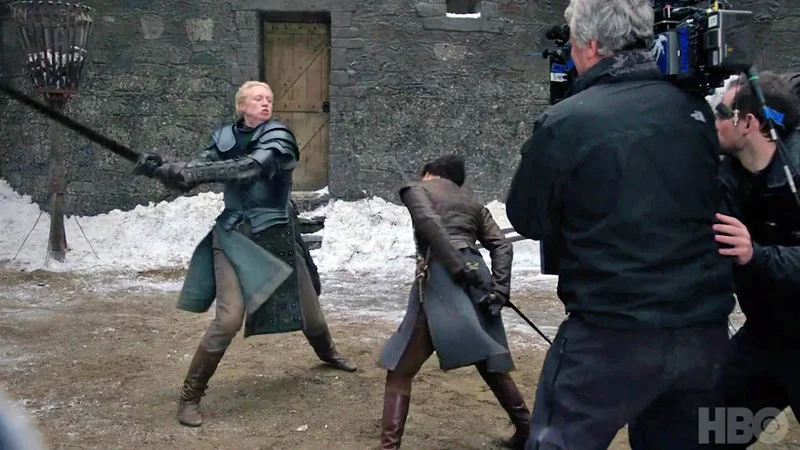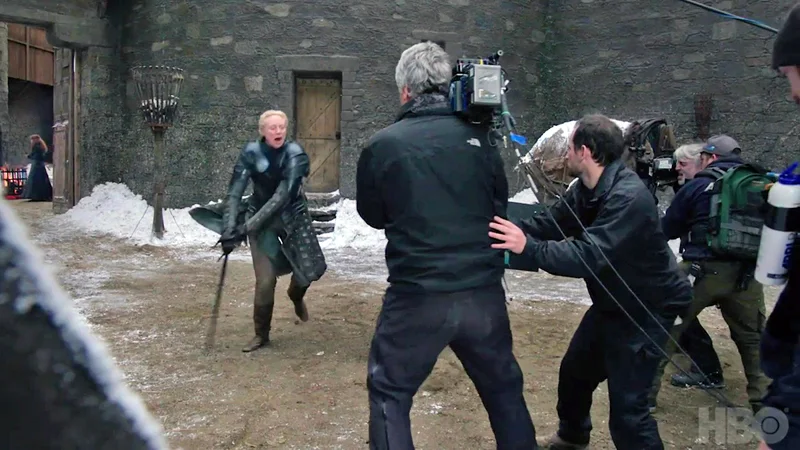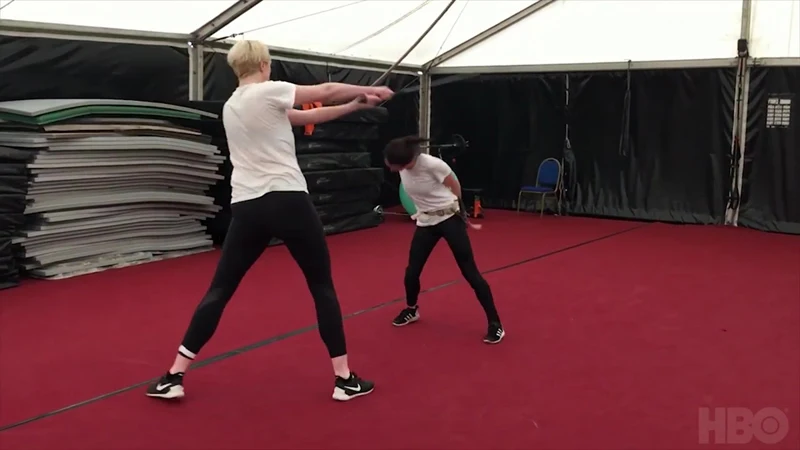Saturday, 19 October 2024
Bo's Bedtime Stories: THE RESCUE - SECTION 6
Monday, 7 March 2022
The Three Evils
The Three Evils
(A Chinese
Folktale re-written by BoSt)
Eventually a
new Official was posted to that district; before the new magistrate formally
took up office however, surreptitiously (covertly and under disguise) he first
went about the countryside and listened to the citizen’s complaints. They in
unison told him that there were three great evils in that district.
The
magistrate still under disguise, decided to in person call on Dschou Tschu.
Late that
night when most decent folks were fast asleep, the inebriated Dschou Tschu
returned from the tavern, along the way slapping his sword and singing in a
loud voice.
When he
reached his house he noted the man with his head down seated by the door and
asked: “Who are you; why are you weeping here so pitifully?”
The
magistrate raised his head and glaring at Dschou, replied: “I am weeping
because of the people’s distress.”
Dschou Tschu
grimaced then threw his head back and guffawed.
“You are
mistaken, my friend,” said he. “Revolt is seething round about us like boiling
water in a kettle. But here, in our little corner of the land, all is quiet and
peaceful. The harvest has been abundant, corn is plentiful, and all go happily
about their work. When you talk to me about distress I have to think of the man
who groans without being sick. And who are you, tell me that, which instead of
grieving for yourself, are grieving for others? And what are you doing
loitering at my door in this ungodly hour?”
“I am the
new Magistrate,” replied the other. “Since I left my litter I have been looking
about in the neighborhood. I find the people are honest and simple in their way
of life, and everyone has sufficient to wear and to eat. This is all just as
you state. Yet, strange to say, when the elders come together, they always sigh
and complain. And if they are asked why, they answer: ‘There are three great
evils in our district!’ I have come to ask you to do away with two of them, as
to the third… perhaps I had better remain silent. And this is the reason I weep
before your door.”
“Well, what
are these evils?” enquired Dschou Tschu. “Speak freely, and tell me openly all
that you know!”
“The first
evil,” said the Magistrate “is the evil dragon at the long bridge, which causes
the water to rise so that man and beast are drowned in the river. The second
evil is the tiger with the white forehead, which dwells in the hills. And the
third evil, Dschou Tschu—is you!”
The crimson
hue, the blush of shame swiftly infused the young man’s cheeks, and he bowed
and said: “You have come here from afar to be the Magistrate of this district,
and yet you feel such sympathy for the people? I was born in this place and yet
I have only made our elders grieve. What sort of a creature must I be? I beg
that you return to your residence; fear not, I will see to it that matters
improve!”
Dschou Tschu
at once took off and ran all the way without stopping till he reached the
hills. There he hunted the tiger out of his cave. The latter leaped into the
air so that the whole forest was shaken as though by a storm. Next he came
rushing up, roaring, and stretching out his claws savagely to seize his pray.
Dschou nimbly stepped back a pace, and the tiger landed on the ground
directly in front of him. Then he thrust the tiger’s neck to the ground with
his left hand, and beat him without stopping with his right, until he lay dead
on the earth. Dschou loaded the tiger on his back and went straight home.
Dschou Tschu subsequently went to the long bridge. He undressed, took his sword in his hand, and thus dived into the icy water. No sooner had he disappeared, than there was a boiling and hissing, and the waves began to foam and billow. It sounded like the mad beating of thousands of hoofs.
After a time a stream of blood shot up from the depths, and the water of the river turned red. Eventually triumphant Dschou, holding the dragon’s decapitated head in his hand, rose out of the waves.
He went to
the Magistrate and reported, with a bow: “I have cut off the dragon’s head, and
have also done away with the tiger. Thus I have happily accomplished your two
commands. And now I shall wander away so that you may be rid of the third evil
as well. My Lord, please keep watch over my countrymen and, relay to the elders
that they need sorrow no more!”
When he had
said this he enlisted as a soldier. In combat against the robbers he gained a
great reputation and once, when the latter were pressing him hard, and he saw
that he could not save himself, he bowed to the East and said: “The day has
come at last when I can atone for my sin with my life!” Then he offered his
neck to the sword and died.
Fin
Monday, 13 August 2018
The Paths to Heaven and Hell
The Paths to Heaven and Hell
A soldier named Nobushige, clad in tattered gear and sporting weaponry worse for wear, brazenly forced his way to see Hakuin, and finding him reposed in contemplation with an ancient book loudly and intrusively demanded: "Is there really a paradise and a hell?"
"Who are you?" Without looking up, Hakuin voiced his inquiry.
"I am a samurai," the warrior sticking his chest out proudly, responded.
"You, a samurai!" Hakuin half looking up grunted. "What kind of ruler would have you as his guard?” Hakuin shook his head. “You resemble more a beggar."
Once a proud warrior, Nobushige was highly incensed and so started to draw his sword, but Hakuin impassively simply added: "So you have a sword! Your weapon is probably much too dull to cut off my head."
The outraged Nobushige now brandishing his sword, poised to strike Hakuin.
Still composed, Hakuin simply remarked: "Here open the gates of hell!"
At these words the samurai, perceiving the master's discipline, sheathed his sword and bowed, somewhat ashamed.
"Here open the gates of paradise," Hakuin uttered, with a calm voice and an almost imperceptible smile.
Fin
Sunday, 3 June 2018
The Two Tigers Fighting
The Two Tigers Fighting
Once upon a time there were two powerful nations at war.
As each were equal in might the fierce, continuous engagement had lasted for over several years wasting away manpower, arms and draining the treasury with neither of them gaining an advantage.
The long drawn out war presented certain advantages to an adjoining kingdom. The Sovereign of this neighboring country, was considering intervention to bolster his country’s prestige and might. He called a war counsel and asked his ministers for their opinion.
The ministers were divided; some claimed this was an opportunity that should not be missed, others claimed it would only draw their country into this never ending conflict and the losses would far outweigh any advantages. Only one junior minister, Roltan, had remained quiet on the subject.
“Your Majesty is most discerning, “Roltan begun with certain eloquence. “ Your Highness, if I may be so bold as to relate a short story about what had happened to me once. When I was in my teens, to test my mettle, I undertook the task of hunting a pair of Tigers that were terrorizing a village.”
“To lure the tigers to a trap, I had first tied an ox to the trunk of an ancient tree in a clearing just outside of the village perimeter.
When the tigers, as expected, descended upon the captive prey, I readied myself to strike. Fortunately, I had with me a seasoned hunter, who quickly advised me to hold still.” Roltan exhaled thoughtfully.
“Wait,” he said. “If you confront them now they will both attack you in unison. The beasts are just beginning to devour the ox. When they are halfway through, finding the meat rather savoury, they will fall into strife as they contend for the choicest parts. After the fray the smaller one will be bested while the big one will suffer injury. Then you will easily finish them both and win certain fame for killing two tigers at once. “
Roltan paused, collecting his words before he spoke. “Never before has our Kingdom been in a more advantageous position to reach its true potential.”
The king eyed this young recruit with an appraising smile. It was in fact his secret ambition to ultimately subjugate these other kingdoms under one rule, his rule.
Thursday, 23 November 2017
SunTzu Strategy six – Element of Surprise
Sun Tzu Strategy six – Element of Surprise
In warfare surprise can be achieved by deception as well as by the troop’s speed and mobility. Also, what is termed “noise” refers to false moves. Make noise in the East and attack in the West, or make noise there and attack here, so that the enemy cannot decide where to put its guard. Thus we can attack the place where the enemy has no defense. The enemy’s command becomes confused and unrestrained; it can then be subdued when discipline is in disarray or lost.
The principal goes, “Against a good attacker, the enemy does not know where to defend.” For a successful attack, attack the place the enemy does not defend; for successful defense, defendant a place the enemy does not attack.
As it is, there can never be too much deception in war. However here some caution is warranted, for one has to be ascertained of the enemy’s lack of judgment before making such false moves to deceive it.
A good commander with presence of mind knows his strong and weak points and arrays his troops accordingly; he is therefore not liable to be misled by the enemy’s false gestures. He can even pretend to be deceived and turn the enemy’s trick against it. Therefore when one tries to deceive the enemy, one must bear in mind the deceitfulness of the enemy.
Thus Sun Tzu observes, “In the past, those who were good at marshaling warfare first made sure that they could not be defeated and then waited for an opportunity to defeat the enemy.”
Fin
Sunday, 29 October 2017
Game of Thrones - Friendly Combat
GOT- Friendly Combat
The time is ripe for progress in the movie industry towards more gender equality as females are no longer considered the weaker sex. All those draconian producers and directors had better hurry up and catch up with the rest of the world, as women are gaining more prominence in a wide range of professions including the military.
In the male dominated industry of movies and TV series in generations past women were always portrayed as the damsel in distress that had to be rescued by their male counterpart, stealing the title of hero. Occasionally you would have the series such as Xena, The Warrior Princess, Star Trek Voyager, The Vikings, or Wonder Woman and other Sc Fi movies that would break the mold.
HBO’s Game of Thrones had its share of objectification of women at the start that turned many females in the audience off. Fortunately towards the end of the series all that changed. Main female characters displayed their authority, guts, grit and excellent fighting ability. Plausible role models that appeased the feminine increased the popularity of GOT. After all, an adventure story thrives on key characters’, male and female, with ability and stamina.
In Season 7, episode 4, the friendly banter between Brienne of Tarth (Gwendoline Christie)

















































